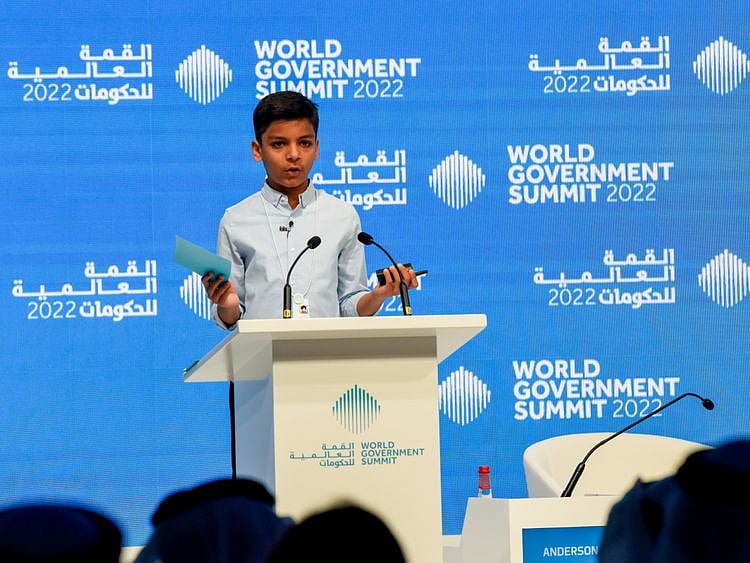Meet world’s youngest computer programmer, 8, who advised global delegates on youth in Dubai
Kautilya Katariya talks of how the next generation will shape the government in the future

Dubai: On the outside, Kautilya Katariya is just like any normal eight-year old boy – playful and curious. But he is no ordinary kid as he holds the title of being the world’s youngest computer programmer. And when he spoke at the World Government Summit at Expo 2020 Dubai on Wednesday, he did so with authority and maturity.
Kautilya, who became the Guinness world record holder for ‘youngest computer programmer’ at the age of six, said for governments to shape the future, they must first “shape the next generation – the youth – who will shape the government in the future”.
“Governments should develop and support tech talents. Give us guidance and direction to shape the future,” he said with a soft but firm voice.
Addressing global delegates
During his 15-minute speech addressing the summit, the certified Microsoft Technology associate and IBM AI (artificial intelligence) professional described himself as a problem solver and a computer programmer. He loves solving puzzles, swimming, cycling, doing origami and reading books.
Kautilya, who is of Indian origin but based in Northampton, UK, shared that he started learning to code at the age of five, when his father gave me a book on computer programming. He said he absorbed the book in one day. He started with basic algorithms and eventually learned advanced programming.
Kautilya said he learned computer programming because his parents gave him proper guidance. And the support he received from his parents must be replicated on a larger scale with governments taking care of their young citizens.
Kautilya shared his advice to governments in a mnemonic. With reference to legendary Alan Turing, who is considered the father of modern computer science, Kautilya said governments should do an ‘Alan T’.
‘A’ is for creating awareness for kids to learn about technology. ‘L’ is for providing learning resources and addressing the curiosity of young ones in maths and sciences. ‘AN’ is giving access to places and not restrictions. And ‘T’ for enhancing the teaching curriculum.
Sign up for the Daily Briefing
Get the latest news and updates straight to your inbox
Network Links
GN StoreDownload our app
© Al Nisr Publishing LLC 2026. All rights reserved.